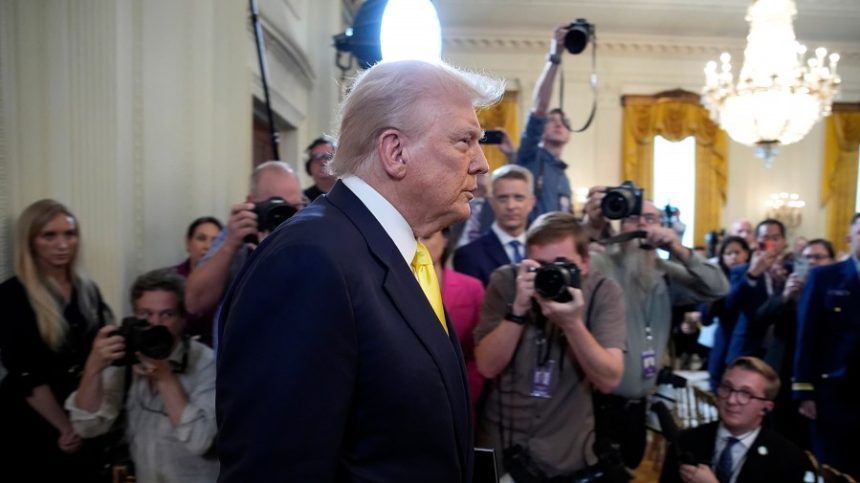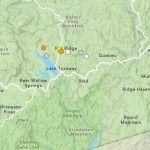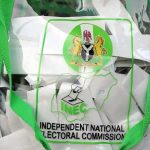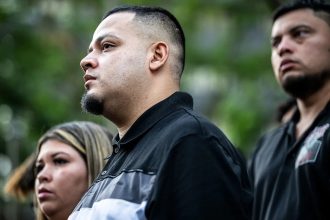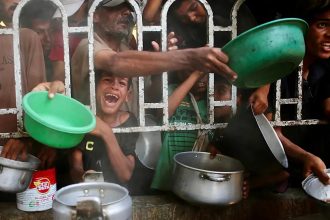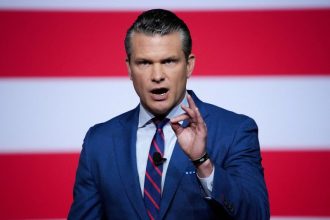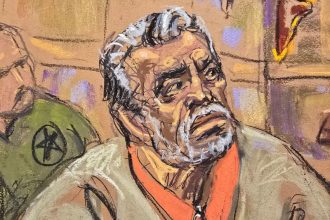President Trump has moved to increase the number of federal law enforcement on the streets of Washington D.C. — a decision he casts as necessary to combat crime.
It’s a move widely seen as a rebuke to the District’s leadership, including Mayor Muriel Bowser (D).
A lot of specifics are as yet undecided, including the total number of additional federal law enforcement officers who will be deployed, and their exact locations. The White House cited security concerns as the reason not to divulge those details.
However, White House officials say that an increased law enforcement presence will be seen on D.C.’s streets. This is expected to be present mainly late at night.
The effort is being spearheaded by the U.S. Park Police but also involves numerous other agencies including the Capitol Police, the FBI, the Marshals Service and the Drug Enforcement Administration.
White House Press Secretary Karoline Leavitt said that while Washington is “an amazing city” it “has been plagued by violent crime for far too long.” She also said that Trump was “committed” to making D.C. “safer for its residents, lawmakers and visitors from all around the world.”
The idea of a crime crisis in Washington is belied by crime statistics from the city police, the Metropolitan Police Department (MPD). Those statistics show violent crime so far this year down 26 percent from its 2024 levels. The crime levels in 2024 were, in turn, lower than in 2023.
The key question now is, what’s next?
Does Trump extend the use of federal law enforcement?
A White House official describes the current push as one that will “be beginning as a 7-day effort with the option to extend as needed.”
The framing invites a number of other questions —particularly, what difference are federal law enforcement personnel likely to make in a week? The situation in D.C., after all, is not one where there is a riotous situation to quell or widespread disorder stemming from any specific cause.
The haziness around the objectives may make a further extension of the federal role more likely. Trump would, presumably, justify such a move on the basis that there was still more work to be done.
But multiple reports from the hours after Trump’s announcement, when there was supposed to be an increased federal law enforcement presence, did not reveal anything out of the ordinary.
An Associated Press report, for example, noted that “a two-hour tour of the D.C. streets, starting around 1 a.m. Friday, revealed no evidence of the sort of multi-agency flood of uniformed personnel described in Trump’s announcement.”
Could Trump take over the D.C. police?
The short answer is, yes. The bigger question is whether he would want to do so.
The District enjoys its current measure of autonomy because of the Home Rule Act of 1973. The legislation reserves some powers for Congress and for the president.
Section 740 of the Act notes that if a President “determines that special conditions of an emergency nature exist,” then the D.C. mayor must lend him “such services of the Metropolitan Police Force as the President may deem necessary and appropriate.”
There are some caveats to this power, however.
In the first instance, a president cannot take over those powers for longer than 48 hours unless, during that period, he provides a written explanation of his reasons to Congress — or, more specifically, to the chairman and ranking member of the Senate and House committees that pertain to D.C.
Trump, however, could likely satisfy this requirement, given the GOP majorities in both chambers.
The more salient constraint, therefore, might be the fact that there is a 30-day limit on this power, even if congressional notification is provided.
Politically speaking, there is also a question of whether Trump would want to make such a dramatic move.
Washington is a very Democratic city — Vice President Harris got more than 90 percent of the vote last November — and reaction to Trump seizing the reins of the local police would surely be negative.
How about the National Guard?
Here, again, Trump has lots of remove to maneuver. The District of Columbia National Guard can be directed at the behest of the president, in contrast to full states where the power to deploy the Guard resides with the governor.
The D.C. National Guard has been at pains to point out that it has not, as yet, been deployed.
A spokesperson for the D.C. Guard told CNN on Friday that the force has not been activated and that any “presence of National Guardsmen and vehicles seen this week and throughout the weekend are related to required training.”
What could go wrong?
Quite a lot.
For a start, Trump could get into more of a pitched battle with Bowser.
The mayor has pursued a much more conciliatory approach toward Trump during his second term than she did during his first. She has been supportive of a task force he set up in March and has refrained from comment on his latest moves.
That’s partly a testament to D.C.’s dependence upon the federal government in numerous ways. Congress in effect withheld $1.1 billion from the District’s budget earlier this year. The federal workforce is of enormous economic importance to the overall D.C. area.
But whether Bowser can remain quiet if Trump expands his control over D.C. is highly questionable. Washingtonians are already sensitive about their circumscribed rights.
There are more macabre things that could go wrong too. Any especially egregious violent crime could make Trump more insistent on federal control. Conversely, any excessive force used against D.C. residents by federal personnel deployed by Trump could ignite new tensions.
Can Trump repeal Home Rule itself?
Realistically, no.
Doing this would require repealing the legislation.
The House might go along with that, but Trump would need 60 votes in the Senate. Even if every Republican voted in favor, he would still need the backing of seven Democrats — a highly unlikely scenario.
Additional reporting: Tanya Noury.
Copyright 2025 Nexstar Media, Inc. All rights reserved. This material may not be published, broadcast, rewritten, or redistributed.
For the latest news, weather, sports, and streaming video, head to The Hill.


